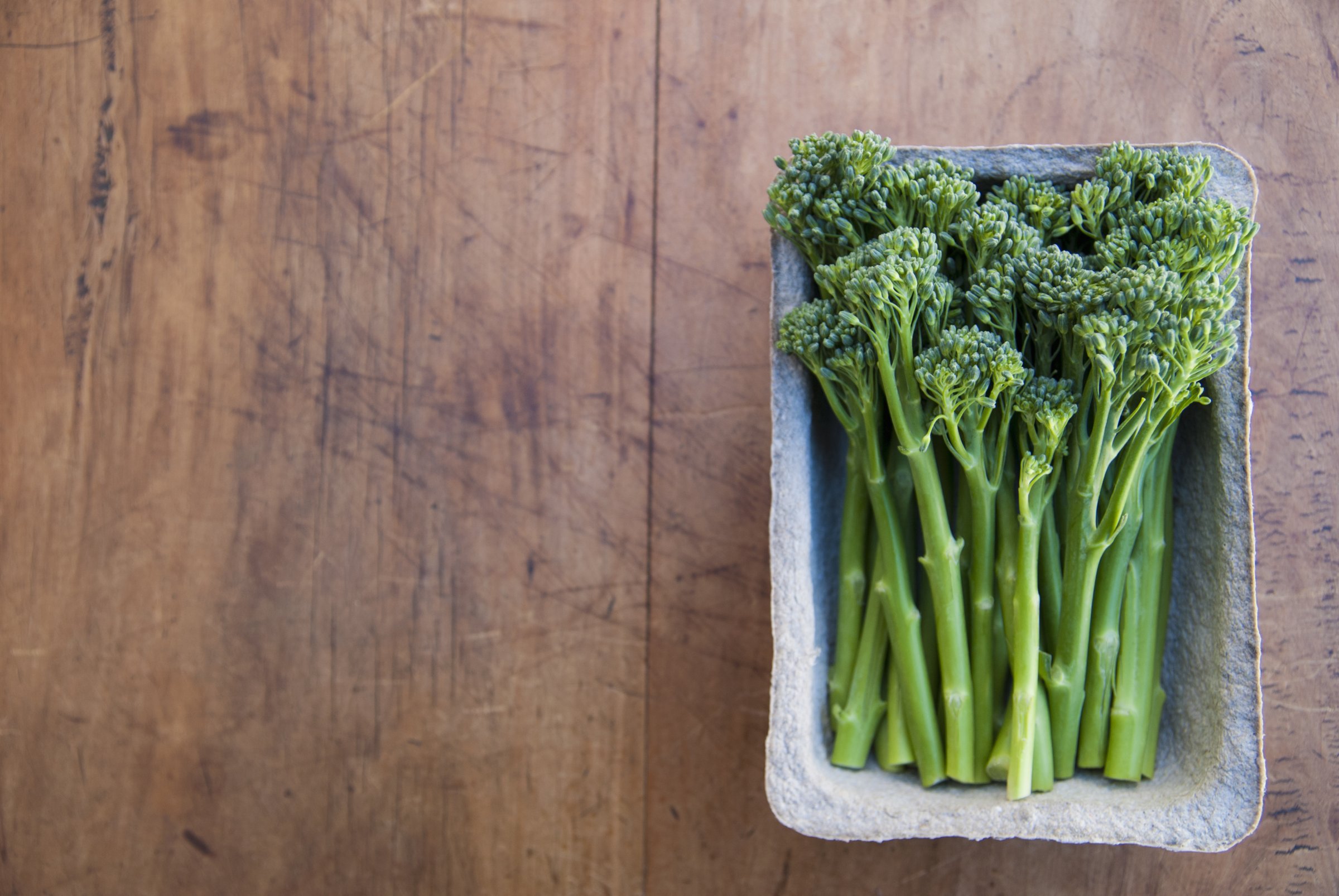
Calcium builds healthy bones and teeth and ensures your muscles, cells, and nerves work properly. Adults need about 1,000 milligrams a day—that’s a little more than three 8-ounce glasses of milk—but what if you’re vegan, lactose intolerant, or just don’t like the taste of dairy products? Here’s a little-known fact: there are lots of non-dairy foods with calcium. Here are 14 of them.
Collard greens
Calcium content: 268 milligrams per 1 cup cooked
Plus: In addition to serving up more than a quarter of your daily calcium needs, this Southern favorite is also loaded with nearly three days worth of vitamin A, a nutrient that helps keep your eyes sharp as you age. Though collard greens are traditionally cooked with butter and fattening meats like bacon, they also taste great sauteed with olive oil and garlic.
Health.com: Eat These Foods to Avoid Bloating
Broccoli
Calcium content: 86 milligrams in 2 cups raw
Plus: Believe it or not, in addition to calcium this cruciferous veggie contains nearly twice the vitamin C of an orange. Research also shows that diets high in cruciferous vegetables like broccoli may be linked to a lower risk of certain types of cancer, including colon and bladder cancer.
Broccoli rabe
Calcium content: 100 milligrams in one 2/3-cup serving
Plus: Broccoli rabe (pronounced “rob”) is the slightly more bitter cousin to broccoli. It provides more than half your daily value of immune-boosting vitamin C and about 3 grams of belly-filling protein. It’s also a great source of vitamin A.
Kale
Calcium content: 101 milligrams in 1 cup raw, chopped
Plus: This superfood has it all: it racks up just 30 calories per serving, provides a day’s worth of vitamin C, and twice the recommended daily intake of vitamin A, not to mention that 101 milligrams of calcium per serving. It also provides a hefty dose of vitamin K, a nutrient that helps your blood clot. Without it, you wouldn’t stop bleeding when you cut or bruise yourself.
Health.com: 13 Ways to Make Kale Taste Good
Edamame
Calcium content: 98 milligrams in 1 cup cooked
Plus: Edamame has been eaten in China and Japan for thousands of years, and it’s no wonder: it’s a nutritional powerhouse. Edamame—which are immature soybeans in the pod—is among the few non-animal foods that is a complete protein, meaning it contains all nine essential amino acids. You also get 8 grams of fiber per serving.
Bok Choy
Calcium content: 74 milligrams per 1 cup shredded
Plus: A cup of bok choy—also known as Chinese cabbage—sets you back just 9 calories. It’s also a great source of vitamin A, vitamin C, and potassium. Bok choy cooks fast, making it perfect for stir-fries, and is available year-round.
Figs
Calcium content: 121 milligrams per 1/2 cup dried
Plus: Bite into a dried fig, and you’ll think you’re indulging in a super-sweet and sticky dessert, when in fact you’re chowing down on a fiber- and potassium-packed fruit. Figs also supply you with magnesium, a nutrient the body uses in more than 300 biomechanical reactions, such as maintaining muscle function, keeping your heart rhythm steady, and strengthening your bones.
Oranges
Calcium content: 74 milligrams in one large orange and 27 milligrams in a cup of orange juice
Plus: You know oranges for their immune-boosting vitamin C content, but they’re also low in calories and brimming with antioxidants.
Health.com: 12 Foods With More Vitamin C Than an Orange
Sardines
Calcium content: 351 milligrams in one 3.75-ounce can
Plus: Don’t be scared of sardines—these salty little fish add tons of umami flavor to salads and pastas. And they serve up even more than just calcium: they’re an amazing source of vitamin B-12, which is a key nutrient for brain and nervous system health. Sardines also contain vitamin D, which is essential for bone health and notoriously difficult to get through food.
Canned Salmon
Calcium content: 232 milligrams in half a can
Plus: If you can’t find environmentally friendly farmed salmon or simply can’t afford wild-caught salmon (which can cost twice as much), try canned salmon. Half a can provides 44% your daily calcium needs, as well as a whopping 38 grams of belly-flattening protein.
White Beans
Calcium content: 63 milligrams in 1/2 cup cooked
Plus: These meaty little guys are rich in fiber, protein, and iron, and they’re also one of the best nutritional sources of potassium. Additionally, they contain resistant starch, a healthy carb that boost metabolism.
Okra
Calcium content: 82 milligrams in 1 cup
Plus: Okra contains constipation-fighting insoluble fiber, as well as vitamin B6 and folate. And don’t write off this veggie if you’ve only ever had a boiled, slimy version; oven-roasting, sautéing, or grilling bring out the best flavor.
Health.com: 20 Snacks That Burn Fat
Tofu
Calcium content: 434 milligrams per half cup
Plus: You know tofu as a vegetarian source of protein. Turns out it’s also a great source of calcium. Tofu is incredibly versatile—it takes on the flavor of whatever else you’re cooking with it.
Almonds
Calcium content: 75 milligrams per ounce (about 23 whole almonds)
Plus: Almonds, which are among the best nuts for your health, contain about 12% of your necessary daily protein, and are rich in vitamin E and potassium. And although they are fattening, it’s the good kind of fat that helps lower your bad cholesterol levels as long as you enjoy them in moderation.
More Must-Reads from TIME
- Why Biden Dropped Out
- Ukraine’s Plan to Survive Trump
- The Rise of a New Kind of Parenting Guru
- The Chaos and Commotion of the RNC in Photos
- Why We All Have a Stake in Twisters’ Success
- 8 Eating Habits That Actually Improve Your Sleep
- Welcome to the Noah Lyles Olympics
- Get Our Paris Olympics Newsletter in Your Inbox
Contact us at letters@time.com